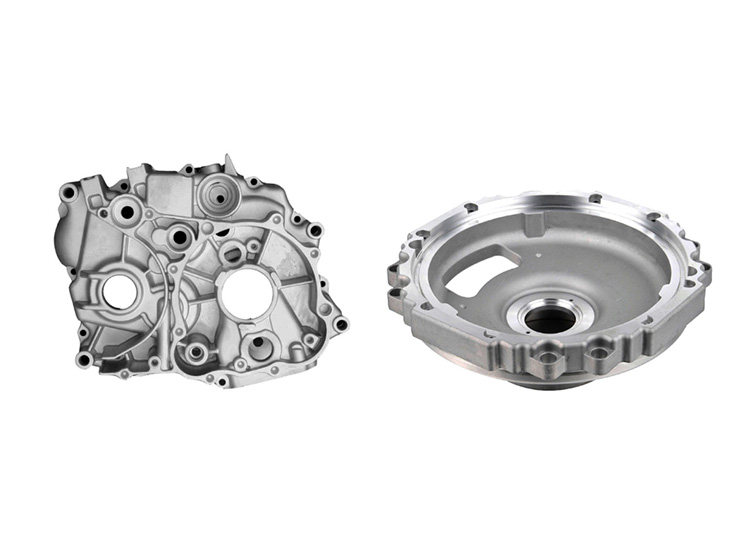The Basic Principles Of Alcast Company
The Basic Principles Of Alcast Company
Blog Article
Not known Factual Statements About Alcast Company
Table of ContentsAlcast Company Things To Know Before You BuyExcitement About Alcast CompanyAlcast Company Things To Know Before You Get ThisMore About Alcast CompanyThe 45-Second Trick For Alcast CompanyThe Definitive Guide to Alcast Company
The subtle difference depends on the chemical material. Chemical Comparison of Cast Aluminum Alloys Silicon advertises castability by reducing the alloy's melting temperature level and enhancing fluidness during spreading. It plays a critical duty in permitting elaborate mold and mildews to be loaded properly. Furthermore, silicon adds to the alloy's toughness and wear resistance, making it beneficial in applications where sturdiness is crucial, such as vehicle components and engine components.It likewise enhances the machinability of the alloy, making it much easier to refine into completed items. In this means, iron adds to the total workability of light weight aluminum alloys.
Manganese adds to the strength of aluminum alloys and improves workability (Foundry). It is commonly used in functioned light weight aluminum products like sheets, extrusions, and profiles. The presence of manganese aids in the alloy's formability and resistance to splitting throughout fabrication procedures. Magnesium is a light-weight element that offers toughness and impact resistance to aluminum alloys.
How Alcast Company can Save You Time, Stress, and Money.
It enables the manufacturing of light-weight elements with superb mechanical homes. Zinc enhances the castability of light weight aluminum alloys and aids control the solidification process throughout casting. It boosts the alloy's stamina and firmness. It is usually located in applications where detailed shapes and fine details are necessary, such as decorative spreadings and specific automobile parts.

The primary thermal conductivity, tensile toughness, return toughness, and elongation differ. Among the above alloys, A356 has the highest possible thermal conductivity, and A380 and ADC12 have the most affordable.
A Biased View of Alcast Company

In precision casting, 6063 is appropriate for applications where intricate geometries and premium surface finishes are vital. Instances consist of telecommunication enclosures, where the alloy's remarkable formability allows for streamlined and cosmetically pleasing designs while preserving structural stability. In the Illumination Solutions market, precision-cast 6063 parts develop stylish and effective lighting fixtures that call for intricate forms and excellent thermal performance.
It results in a finer surface area finish and far better deterioration resistance in A360. Additionally, the A360 shows remarkable prolongation, making it ideal for complex and thin-walled elements. In precision spreading applications, A360 is appropriate for sectors such as Consumer Electronics, Telecommunication, and Power Devices. Its improved fluidity enables complex, high-precision parts like smartphone coverings and interaction gadget housings.
Alcast Company Things To Know Before You Buy
Its unique residential or commercial properties make A360 a beneficial selection for precision spreading in these sectors, enhancing item resilience and quality. Aluminum alloy 380, or A380, is an extensively utilized spreading alloy with several distinct characteristics. It supplies outstanding castability, making it an excellent selection for accuracy casting. A380 exhibits good fluidness when molten, ensuring elaborate and in-depth mold and mildews are accurately duplicated.
In accuracy casting, light weight aluminum 413 beams in the Customer Electronics and Power Devices markets. This alloy's superior deterioration resistance makes it an exceptional option for outside applications, making certain lasting, resilient items in the pointed out sectors.
Unknown Facts About Alcast Company
Once you have actually determined that the aluminum die casting process is suitable for your project, a vital next action is picking the most proper alloy. The aluminum alloy you pick will considerably affect both the casting process and the properties of the final product. As a result of this, you need to make your decision meticulously and take an enlightened method.
Determining the most suitable aluminum alloy for your application will imply weighing a wide array of qualities. The very first classification addresses alloy features that influence the manufacturing process.
The 7-Minute Rule for Alcast Company
The alloy you select for die spreading straight influences several aspects of the spreading process, like just how very easy the alloy is to collaborate with and if it is susceptible to casting problems. Warm fracturing, additionally called solidification splitting, is a common die casting defect for aluminum alloys that can cause interior or surface-level splits or splits.
Particular aluminum alloys are more at risk to hot breaking than others, and your selection should consider this. It can harm both the cast and the die, so you should look for alloys with high anti-soldering properties.
Corrosion resistance, which is currently a notable attribute of aluminum, can vary substantially from alloy to alloy and is an important characteristic to think about depending upon the environmental conditions your product will certainly be subjected to (Aluminum Casting). Wear resistance is another building commonly sought in light weight aluminum items and can set apart some alloys
Report this page